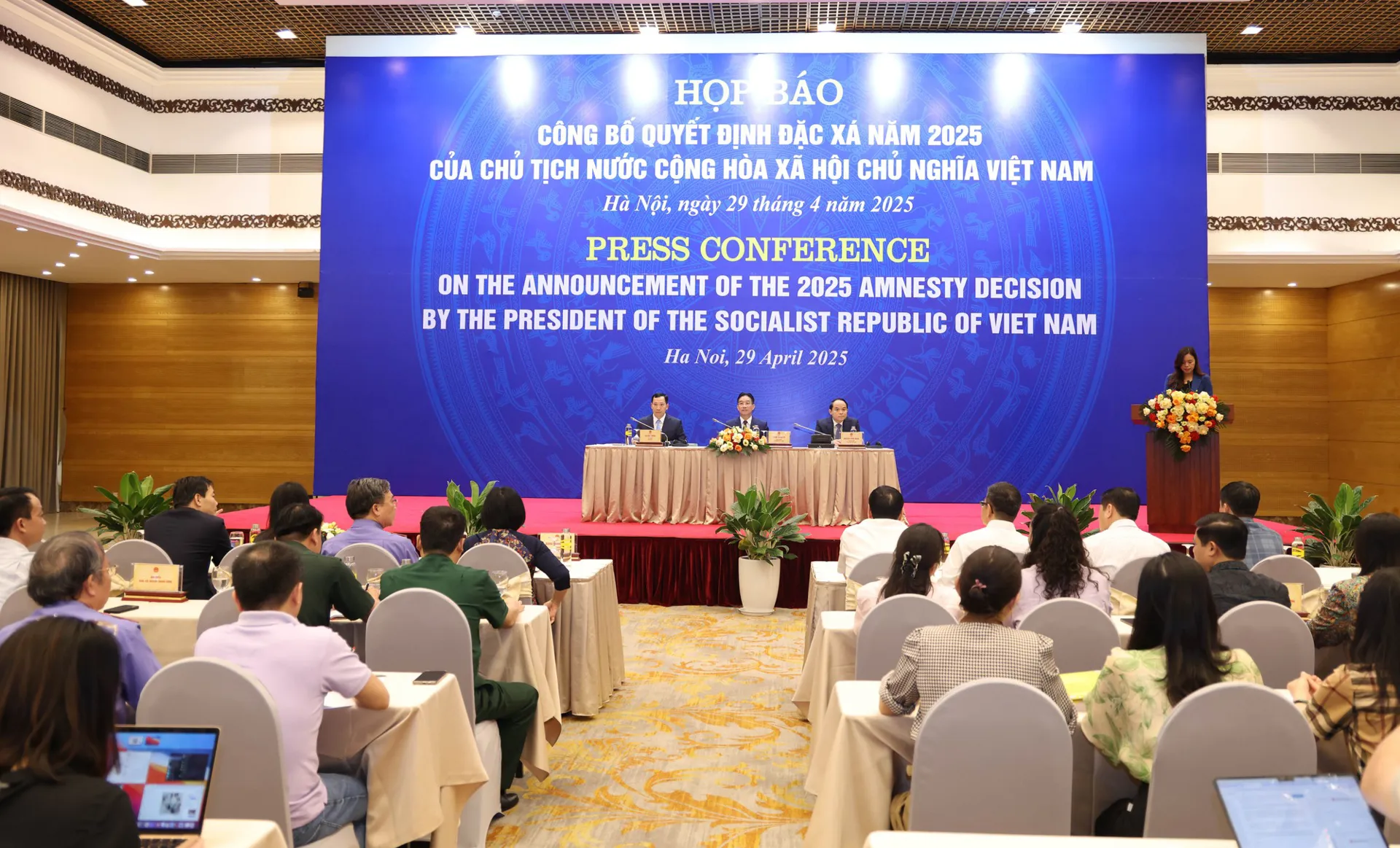President grants amnesty to 8,000 prisoners on reunification day anniversary
Amnesty is a legal policy that reflects the humanitarian tradition of the Vietnamese people and the clemency policy of the Party and State.
THE HANOI TIMES — State President Luong Cuong has granted amnesty to more than 8,000 prisoners on the occasion of the 50th anniversary of the National Reunification (April 30, 1975 – April 30, 2025).
The decision will take effect on May 1, 2025.

The conference held by the Ministry of Public Security on granting amnesty to more than 8,000 prisoners. Photo: VGP
According to Lieutenant General Le Van Tuyen, Deputy Minister of Public Security, some 740 of more than 8,000 prisoners granted amnesty this time were convicted of economic-related offenses.
The list also includes 25 foreign nationals, 21 men and four women, from nine different countries.
Vietnam now has more than 190,000 inmates held in prisons, temporary detention centers, and other correctional facilities under the Ministry of Public Security. The number of prisoners granted amnesty this year accounts for more than 4% of the total prison population.
Amnesty is a legal policy that reflects the humanitarian tradition of the Vietnamese people and the clemency policy of the Party and State.
Over the years, Vietnam has carried out multiple rounds of amnesty to release inmates who have demonstrated good behavior, discipline, and rehabilitation efforts, allowing them to reintegrate into society.
The 2025 amnesty applies to prisoners currently serving time in prisons and detention centers, and those whose sentences have been temporarily suspended. Eligible individuals must meet strict criteria and undergo a transparent, fair, and democratic review process.
Those granted amnesty are required to fulfill any remaining obligations such as fines, compensation, and other civil penalties. They may also remain subject to additional legal restrictions, including bans on holding certain positions or residing in specific areas.
The Ministry of Public Security and local authorities have to develop support measures to help the released individuals reintegrate successfully into their communities.
According to the ministry, past amnesty recipients have generally shown a strong commitment to rehabilitation, with many rebuilding their lives, achieving personal success, and contributing positively to society.











